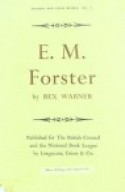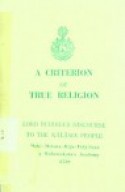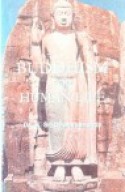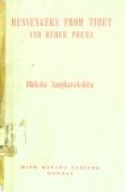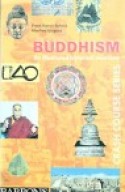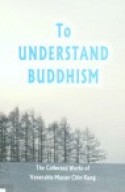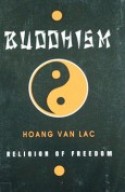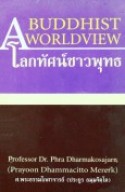Tìm Sách
Sách tiếng Anh-English >> The Poetry of Enlightenment
Thông tin tra cứu
- Tên sách : The Poetry of Enlightenment
- Tác giả : Ancient Ch'an Masters
- Dịch giả : Master Sheng-Yen
- Ngôn ngữ : Anh
- Số trang : 87
- Nhà xuất bản : Dharma Drum- Elmhurst, New York
- Năm xuất bản : 1987
- Phân loại : Sách tiếng Anh-English
- MCB : 1210000005648
- OPAC :
- Tóm tắt :
INTRODUCTION
Some years ago I edited a book in Chinese entitled Ch’an Men Hsiu Cheng Chih Yao, or A Guide to the Experience and Practice of Ch’an, a collection of essays and poems by Ch’an masters. The authors ranged from Bodhidharma, the Indian monk who arrived in China in 520 or 527 A.D., to Hsu Yun (1839-1959). Of the twenty-four works in the collection, thirteen are poems. I have selected eight of these for the present volume plus two other poems, one by Han Shan Te Ch’ing (On Clear Mind), and one by Hung Chih Cheng Chueh (Silent Illumination). Three of our ten poems can be found in the Wan Tzu Hsu Tsang Ching (Manji-zokuzokyo): Song of the Precious Mirror Samadhi, On Clear Mind and Contemplating Mind. Silent Illumination is found in the Ta Cheng Ta Tsang Ching (Taisho-daizokyo). The rest are recorded in the Ching Te Ch’uan Teng Lu (Record of the Transmission of the Lamp).
These same ten poems I have used over the years as lecture topics for Ch’an retreats and evening classes at the Ch’an Meditation Center in New York City. Before each lecture series one or more of my bilingual students would render each poem into English as I interpreted the meaning, line by line, in modern Chinese. The poems were chosen for thẹừ concise and simple language, but also for theừ deep and rich meanings. They were written by highly accomplished Ch’an masters only after they’ had reached thorough enlightenment. These masters wrote poems to express their experience of Ch’an, to provide future generations with the means of realizing Ch’an, and to describe the situation of the mind after enlightenment.
But since Ch’an is basically ineffable, the authors relied heavily on allusions, similes and metaphors which can best be interpreted in less obscure language by someone who has already practiced Ch’an very deeply. I believe that in the English translation, the poems become more accessible; but even so, only a portion of the meanings may be easy to understand. The density of the ideas in the poems ideally requires an expanded commentary. Two of the poems — Han Shan’s Contemplating Mind and Hung Chih’s Silent Illumination – have already been published along with commentaries in my book Getting the Buddha Mind. Future books containing full commentaries of most of the other poems are planned.
My purpose in publishing this collection is to provide the reader with insight into the minds of the Ch’an masters — their practice and their post-enlightenment experience. Moreover, the poets were not only highly accomplished practitioners, they were also well-versed in literature, history and Buddhist scholarship. In these poems we can discern references to Chinese philosophical, religious and literary history as well as to the roots and theories of Indian Buddhism.
In Chinese the poems vary in style. Some strictly follow the rules of Chinese poetry and others are written in the form of a song. Still others resemble the gathas of Sanskrit verse, although in Chinese the standard meter and rhyme of Sanskrit are not retained. Thus these poems are interesting from the point of view of literary analysis, though it is not my purpose to elaborate on that aspect here.
To my knowledge there are no anthologies of Ch’an poetry in Chinese, Japanese or English which describe in detail the method of practice and the experience of Ch’an. Furthermore, there are few prose sources in English dealing with the same topics. On the other hand, there are numerous books in English that relate the episodes of the kung-ans (koans). The prevailing view that comes from reading these stories is that the practice of Ch’an is methodless, and since there is no way to describe the experience of Ch’an, it is suggested that we just go ahead and practice by studying the kung-ans. The purpose of these poems is different in that they specifically show you how to practice, what attitudes to cultivate and what pitfalls to beware of. Finally, they attempt to describe the ineffable experience of Ch’an itself. These poems flow directly from the minds of the enlightened Ch’an masters; we get a glimpse into then experience at the time of, and after then enlightenment. In contrast, in reading a kung-an we get an objective story of what happened and we don’t really know what was in then minds.
It is my hope that this collection of poems will give those who are interested in the practice a new way of looking at Ch’an and a more balanced view of the scope of Ch’an literature. The present selection is offered to make this tradition available to Western readers, who may otherwise not be aware of their existence.
Master Sheng-Yen
Ch’an Meditation Center
New York City
November, 1985
CONTENTS
Introduction
Calming the Mind
Shih Wang Ming
Hie Mind King
Master Fu
Faith in Mind
SengTs’an
Song of Mind
Niu TouFaJung
Song of Enlightenment
Yung Chia Hsu an Chueh
Inquiry into Matching Halves
Shih Tou Hsi Ch’ien
Song of the Precious Mirror Samadhi
Tung Shan Liang Chieh
Silent Illumination
Hung Chih Cheng Chueh
On Clear Mind
Han Shan Te Ch’ing
Contemplating Mind
Han Shan Te Ch’ing
 Facebook
Facebook
 Google
Google
 Google+
Google+

